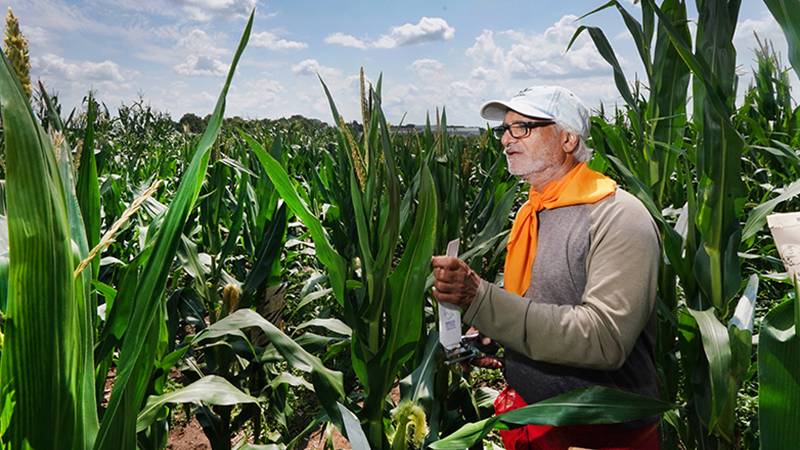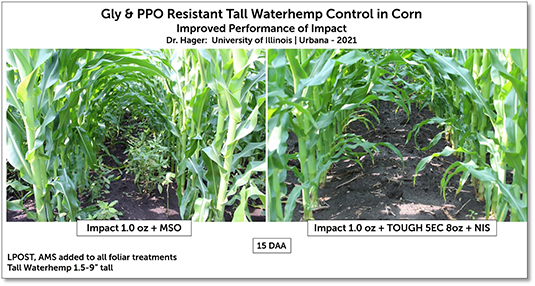Purdue Innovates Licenses Novel Short-Stature Corn Technology to Ag Alumni Seed

Guri Johal, professor of botany and plant pathology in Purdue University’s College of Agriculture, examines a short-stature corn inbred called D16. The Purdue Innovates Office of Technology Commercialization has issued a worldwide, exclusive license for D16 to Romney, IN-based Ag Alumni Seed. Photo: Purdue Agricultural Communications photo/Tom Campbell
The Purdue Innovates Office of Technology Commercialization has issued a worldwide, exclusive license for a short-stature corn inbred called D16 to Romney-based Ag Alumni Seed.
The license is limited to popcorn and doesn’t apply to dent corn, field corn or sweet corn.
Traditional breeding techniques
Ag Alumni Seed has supported multiple research projects at Purdue University with both financial and in-kind contributions — such as the use of land, equipment and facilities. Jay Hulbert, the company’s president and CEO, said development of D16 began with research that Guri Johal conducted at the company’s Romney facility a decade ago. Johal is a professor of botany and plant pathology in Purdue University’s College of Agriculture.
“D16 is not a GMO trait. Guri converted multiple elite Ag Alumni Seed proprietary popcorn inbreds to incorporate into D16,” Hulbert said. “The feature was developed using time-honored traditional breeding techniques without incorporating any foreign DNA into the corn.”
Benefits of D16 to farmers
Hulbert said a shorter corn plant like D16 has advantages over traditional corn plants.
“A shorter plant is less likely than a taller plant to break, fall over or ‘lodge’ under stress caused by high winds or other severe weather,” he said. “In a food crop like popcorn, lodging increases the risk of the grain being contaminated by dirt or other foreign materials; D16 may be at lower risk of contamination than traditional corn. In addition, corn can become so tall that it’s difficult for farmers to work in the field except with specialized high-clearance equipment.”
D16 may also enhance yield reliability for farmers.
“Shorter-stature corn may improve sustainability by allowing farmers to grow more plants per acre, improving yield and utilizing water and fertilizer more efficiently,” Hulbert said.
Developing D16 further
Hulbert outlined Ag Alumni Seed’s next steps with D16.
“Using our Southern Hemisphere facilities, we will fast-track new hybrids with this shorter-stature feature. The new hybrids will be tested side by side with our current hybrids in U.S. trials this coming summer,” Hulbert said. “Based on the results of those trials, we’ll make decisions on conducting further trials and commercializing D16 hybrids.”





